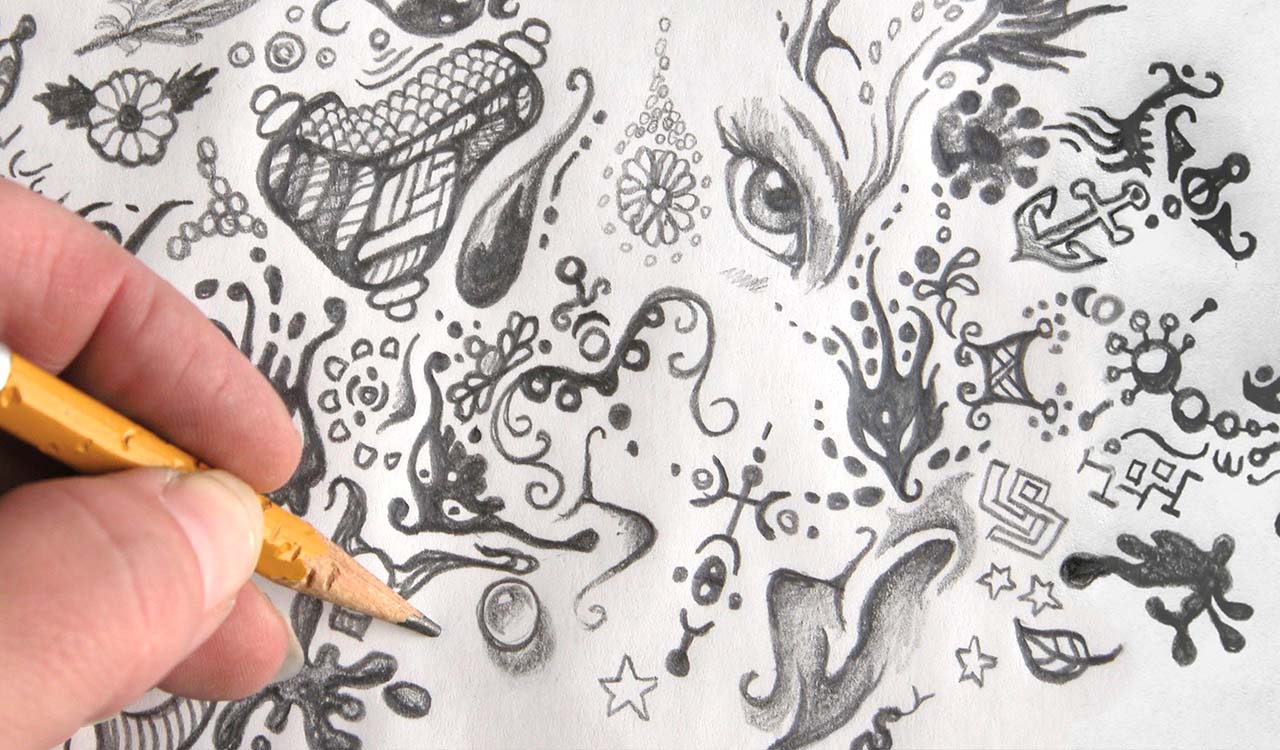Can you remember the last time you used a pen and notebook while studying? It’s okay if you can’t, given the current push to make everything digital. Sometimes it’s just more convenient to do things digitally. After all, most of us carry a pocket computer and Dick Tracy watch with us at all times.
Despite how easy it is to do almost everything digitally, our brains sometimes struggle to keep up with our new digital world, and we can thank centuries of evolution for that. When you think about it, laptops have only really been widely available for the last twenty years or so, which in terms of the entirety of human existence is barely anything at all.
Memory in the making
When you write things down, something noteworthy happens in your brain: encoding. Memory encoding is when things we perceive are sent to our brain’s hippocampus and then analyzed.

The hippocampus is located deep in the frontal lobe, and it plays a vital role in declarative memory and learning. The American Psychological Association defines declarative memory as:
“The ability to retain information about facts or events over a significant period of time and to consciously recall such declarative knowledge, typically in response to a specific request to remember.”
Your hippocampus decides if the thing gets stored in your long-term memory or if those memories get discarded. Writing things down helps tell your brain the information is worth remembering.
Paper + memory = BFFs
In the grand scheme of things, digital learning is relatively new. It shouldn’t come as a surprise that research shows that our brains remember information better when paper notebooks are involved. A 2021 Japanese study analyzed the difference between how your brain responds when trying to remember information that was written down on paper, a tablet, and a smartphone.
The study found significantly higher brain activity when it came to memory retrieval in the paper group. The participants who used paper had more brain activity in areas associated with language, imaginary visualization, and hippocampus. The activation of the hippocampus reveals that using paper notebooks promotes richer spatial details that can be recalled more easily.
Pro Tip: Paper isn’t endless
Paper, note cards, and books are easier for your brain to visualize. With paper notes, there is a tactile element, uneven spacing, and irregular strokes, all things your brain can use to associate with a memory.
If you were to close your eyes right now, you can probably easily recall what a piece of paper looks like, but can you do the same for an online article?
Our brains are really good at conceptualizing objects and placement but tend to struggle in a digital environment. The reason is that when we scroll, the information becomes blurred because it’s not tied to something our brain can easily retrieve. If you want to remember information, write it down on paper, your brain will thank you.
Why hand-written notes work
The 2014 study, The Pen Is Mightier Than the Keyboard: Advantages of Longhand Over Laptop Note Taking, discovered that students whose notes were taken by hand out-performed those students who had taken notes on a laptop when it came to memory retrieval and conceptual understanding.
With note-taking, laptop usage tends to result in shallower mental processing, which is detrimental to overall learning. The reasoning for this is that there is a tendency to write what is being said verbatim when using laptops because you can keep up with the speaker. It is objectively easier to do this on a laptop than when you’re writing by hand (unless you’re a shorthand wiz).
However, through listening, absorbing, then reframing what is being said in your own words, your brain can process the information deeper. Reframing is how your brain makes meaningful connections that help you remember the information at a later date. In essence, you are double learning when you take notes by hand. Your brain is hearing the information and absorbing it so that your notes accurately reflect what is being said.
Power of creativity
You know that one lecture where it feels like the speaker sounds like the teacher in Peanuts? If you’ve doodled in your notebook, don’t worry. Contrary to what you might have been told in grade school, doodling is great for your brain.

When you doodle, your brain is able to take a break without completely zoning out and losing interest. You’re able to stay engaged and continue absorbing information while avoiding brain fatigue. Think of doodling as walking in place, you’re still moving but you’re not going anywhere.
In a study on doodling, two groups were asked to listen to a dull and rambling voicemail. One group was told to doodle while listening, and the other group did not. Neither group had been told they would have to recall information from the voicemail. When asked to share details from the voicemail, the doodle group was able to recall 29% more information. So next time you feel yourself zoning out, try making a little doodle, it might just help you remember better!
Analog or Digital?
Research suggests that when it comes to understanding, memorizing, and recalling information the pen (and notebook) might be mightier than the laptop. However, it’s important to remember there isn’t one magical method to help you study. At the end of the day, you know what works best for your learning style. But if you’re ever in the market to try something new, break out the old pen and paper to see if it helps you.


 learning science
learning science